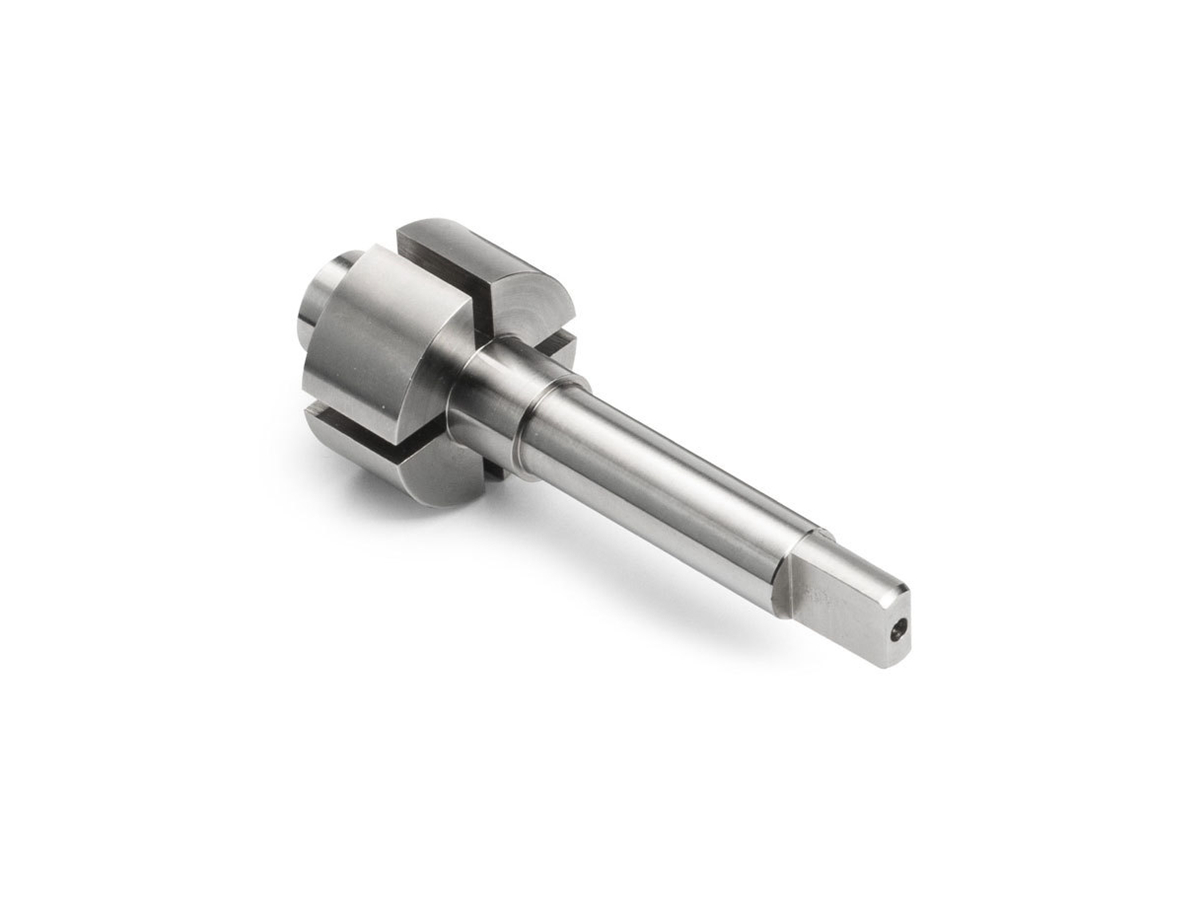Custom CNC Machined Implants for Medical Device Applications
Introduction to CNC Machined Medical Implants
Custom medical implants demand exceptional precision, biocompatibility, and adherence to rigorous medical standards. Advanced CNC machining technology is essential in fabricating personalized medical implants, including orthopedic screws, spinal cages, hip and knee replacements, dental implants, and trauma fixation plates. Preferred implant materials include medical-grade titanium alloys (Ti-6Al-4V ELI, Grade 23), cobalt-chromium alloys (CoCr), stainless steel SUS316L, and medical-grade PEEK polymer. These materials are specifically chosen due to their proven biocompatibility, superior mechanical strength, fatigue resistance, corrosion resistance, and compatibility with sterilization methods.
Leveraging expert CNC machining services, implant manufacturers achieve the necessary dimensional accuracy and surface quality to meet ISO 13485 certification and ISO 10993 biocompatibility standards.
Material Performance Comparison for CNC Machined Implants
Material | Tensile Strength (MPa) | Yield Strength (MPa) | Biocompatibility (ISO 10993) | Corrosion Resistance (ASTM F2129) | Typical Applications | Advantages |
|---|---|---|---|---|---|---|
860-950 | 795-880 | Excellent | Outstanding (>1300 mV breakdown potential) | Orthopedic screws, spinal cages | Exceptional biocompatibility, superior fatigue strength | |
900-1200 | 500-800 | Excellent | Excellent (>1200 mV breakdown potential) | Hip and knee replacements | High wear resistance, excellent biocompatibility | |
480-620 | 170-310 | Excellent | Superior (>1000 mV breakdown potential) | Trauma fixation plates, surgical screws | High corrosion resistance, sterilization compatibility | |
90-100 | N/A | Excellent | Excellent (chemically inert) | Spinal implants, dental components | Radiolucency, chemical inertness |
Material Selection Strategy for Custom CNC Machined Implants
Careful material selection ensures implant longevity, biocompatibility, and reliable performance:
Ti-6Al-4V ELI (Grade 23) is ideal for orthopedic implants, spinal screws, and dental implants due to its outstanding biocompatibility, corrosion resistance (ASTM F2129 breakdown potential >1300 mV), and high fatigue strength for long-term implantation.
Cobalt-Chrome Alloys provide exceptional wear resistance and strength, making them optimal for articulating surfaces in hip and knee replacements requiring high durability.
Stainless Steel SUS316L is extensively used in trauma fixation plates and surgical screws due to its excellent corrosion resistance, mechanical reliability, and ease of sterilization.
Medical-grade PEEK offers unique advantages such as radiolucency and chemical inertness, making it suitable for spinal implants and dental implant components, where imaging compatibility and minimal interference are essential.
CNC Machining Processes for Medical Implants
CNC Machining Process | Dimensional Accuracy (mm) | Surface Roughness (Ra μm) | Typical Applications | Key Advantages |
|---|---|---|---|---|
±0.005 | 0.2-0.8 | Complex spinal implants, joint replacements | Precise geometries, complex surface features | |
±0.005-0.01 | 0.4-1.2 | Orthopedic screws, cylindrical implants | Precise rotational accuracy | |
±0.002-0.005 | 0.1-0.4 | Articulating surfaces, dental components | Exceptional surface finish and accuracy | |
±0.01-0.02 | 0.8-1.6 | Fixation holes, attachment points | High accuracy, consistent hole placement |
CNC Process Selection Strategy for Implant Components
Appropriate selection of CNC machining processes ensures dimensional precision, implant durability, and reliable integration with biological systems:
5-Axis CNC Milling enables the fabrication of complex implant geometries and intricate surface details, achieving tolerances within ±0.005 mm essential for precise fit and optimal patient outcomes.
CNC Turning produces precise rotational geometries for implants like bone screws and cylindrical components with dimensional accuracy of ±0.005 mm.
CNC Grinding delivers ultra-precise finishes (Ra ≤0.4 µm) required for articulating surfaces in joint replacements, significantly enhancing implant longevity and reducing wear.
Precision CNC Drilling ensures precise, consistent fixation hole placements (±0.01 mm) for secure attachment and stable integration of implants.
Surface Treatment Performance Comparison for Implants
Treatment Method | Surface Roughness (Ra μm) | Biocompatibility (ISO 10993) | Corrosion Resistance (ASTM F2129) | Surface Hardness | Typical Applications | Key Features |
|---|---|---|---|---|---|---|
0.4-1.0 | Excellent | Superior (>1200 mV breakdown potential) | N/A | Stainless implants, fixation screws | Enhanced corrosion resistance, sterilization-ready | |
0.4-1.0 | Excellent | Excellent (>1000 mV breakdown potential) | HV 400-600 | Titanium orthopedic implants | Improved corrosion resistance, biocompatible oxide layer | |
0.1-0.4 | Excellent | Excellent (>1300 mV breakdown potential) | N/A | Surgical screws, dental implants | Ultra-smooth finish, reduced contamination risk | |
0.1-0.3 | Excellent | Outstanding (>1500 mV breakdown potential) | HV 1500-2500 | Joint replacements, surgical tools | High wear resistance, long-term durability |
Surface Treatment Selection for CNC Machined Implants
Selecting appropriate surface treatments significantly enhances implant performance, safety, and biocompatibility:
Passivation provides corrosion-resistant surfaces critical for stainless steel implants and surgical components exposed to sterilization processes and biological environments.
Anodizing enhances titanium implants' durability, producing biocompatible oxide layers (HV 400-600), thereby improving corrosion resistance and implant longevity.
Electropolishing creates exceptionally smooth surfaces (Ra ≤0.4 µm), vital for reducing bacterial adhesion and facilitating implant sterilization and cleanliness.
PVD Coating dramatically increases implant wear resistance (HV 1500-2500), significantly extending the functional life of prosthetic joints and articulating implants.
Typical Prototyping Methods for Medical Implants
CNC Machining Prototyping: Offers precise, functional prototypes (±0.005 mm) for clinical validation and regulatory approval.
Rapid Molding Prototyping: Allows fast creation of realistic prototypes for thorough biological and mechanical testing.
Metal 3D Printing (Powder Bed Fusion): Provides rapid production of complex implant prototypes (±0.05 mm accuracy), facilitating iterative design validation and optimization.
Quality Assurance Procedures
CMM Inspection (ISO 10360-2): Verifies dimensional accuracy within ±0.005 mm.
Biocompatibility Testing (ISO 10993): Ensures safe biological integration.
Surface Roughness Testing (ISO 4287): Confirms compliance with stringent implant standards.
Non-Destructive Testing (ASTM E1444, ASTM F601): Validates structural integrity without compromising biocompatibility.
ISO 13485 Certified Documentation: Maintains full regulatory compliance, traceability, and stringent quality controls.
Related FAQs:
Why choose CNC machining for medical implants?
Which materials are best for implant applications?
How do surface treatments benefit medical implants?
What prototyping methods enhance implant quality?
How is implant quality assured through CNC machining?

